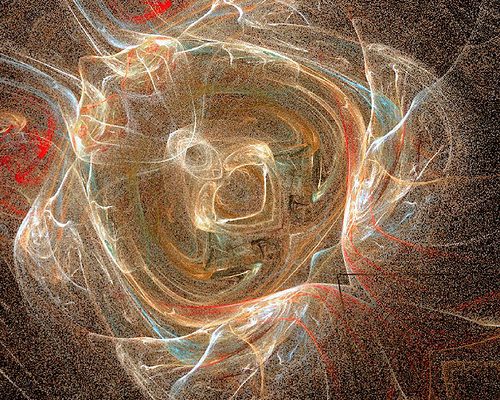Magical thinking is a type of causal reasoning or causal fallacy that looks for meaningful relationships of grouped phenomena between acts and events.
Source:Wikipedia
As defined, magical thinking is a conscious association between an occurrence, an outcome, a thought, or an act which an independent observer would declare as unrelated. The holder of the magic thought is convinced that if he or she believes strongly enough, or performs a specific action the same way they did when the desired outcome became manifest, that it will do so again. This speaks mostly to actions and events that are not truly connected.
There are other forms of magical thinking.
––––
Correlation of events does not necessarily indicate a common causation of the outcome.
Imagine a child who collects cards for a game by purchasing them in packages at a retail outlet. The child may believe that standing a certain way, or using a special incantation, or prayer will allow them to discover the pack containing the cards that are most desirable.
Sometimes it works.
Magical thinking begins with a leap, one which Albert Einstein explains this way: “There comes a leap in consciousness, call it intuition or what you will, and the solution comes to you and you don’t know why or how.” This intuition is often correct. If it is about an action on your part creating an outcome you experienced, it is magical thinking. People often develop this in situations which are very hard to control. Magical thinking can be equated with superstition – like rituals baseball players use when at bat.
When magical thinking is being promoted as prosperity consciousness, as in The Secret, the basis presented is that we control what happens to us by what we think.
––––
Q: Is the universe sympathetic to our wishes?
A: I think the answer depends on how we frame the question.
A young man approached his dying grandfather’s bedside. “Yes, Grandfather?”
The old man opened his eyes. “I called you here to give you my blessing and a hope.”
“It is not necessary, Grandfather.”
“Shhh…” the old man smiled. “My blessing is that you receive everything you want.”
His grandson looked bemused, “Thank you, Grandfather.”
Grandfather smiled at this, “My hope is that you want everything you receive.”
As I have written elsewhere, there is choice. Though for some of us, what type of choice and the impact those choices have on the road to our destiny may have limits.
 Some years ago my friend who I refer to as Stephen in the Unfolding Series looked into the Akashic Records on my behalf and reported I had indeed arranged for the major inflection points I experienced in the time period we were discussing. According to Stephen, I set goals which had less to do with my day-to-day activities and more to do with working through issues and development with other souls.
Some years ago my friend who I refer to as Stephen in the Unfolding Series looked into the Akashic Records on my behalf and reported I had indeed arranged for the major inflection points I experienced in the time period we were discussing. According to Stephen, I set goals which had less to do with my day-to-day activities and more to do with working through issues and development with other souls.
The choices I make are usually bounded by decisions made with my friends before entering this life. I say “usually” because I have found it is possible to alter one’s path, though this option needs careful consideration. Midcourse corrections may include a cost of their own.
––––
Q: Can our thoughts influence the world?
A: Absolutely!
In my experience, what many people refer to as magical thinking is real. It is the vehicle not only of intuition as Einstein noted but it is also a source of the belief allowing us to imagine that our ideas are worth pursuing. Magical thinking is ultimately a tool, which when used wisely and effectively, makes it possible to reach beyond our grasp and improve not only our state, but also the state of those who journey with us and those who will follow.
––––
In our search for understanding, our place in the universe, and the laws that govern it; there is a sacred and invisible mechanism that ties us to our Source.
Whether magical thinking works for a person or not may be largely determined by how conscious the universe is and how conscious a person is. People who perceive Source are better able to discern the subtle nature of choice.
Biases and false linkages between outcome and cause will always be problematic.
There are many classifications regarding the belief in magical thinking ranging from the skeptic to the schizophrenic. At the benign end of the scale, the worst that happens when people realize they have linked cause and effect incorrectly is to make a bemused face, smile, laugh at themselves, and then adjust their thinking to fit the newly discovered facts.
Extreme behaviors demonstrated when magical thinking fails are: rationalizing the failed attempt, constantly talking about the mechanism that should have worked, or not indicating why they believe the outcome should have been achieved . This does not allow a person to stop, re-think, and change their expectation.
“knock on wood”
– Jeffrey A. Limpert
__________________
References:
http://en.wikipedia.org/wiki/Magical_thinking
http://www.scientificamerican.com/article.cfm?id=superstitions-can-make-you
http://www.psychologytoday.com/articles/200802/magical-thinking
https://en.wikipedia.org/wiki/Creative_visualization
https://en.wiktionary.org/wiki/Talk:intuition
https://en.wikipedia.org/wiki/Akashic_records
http://www.huffingtonpost.com/deepak-chopra/the-nuisance-of-magical-t_b_39887.html
Image Information:
Meditation of a Genie
By garlandcannon
https://secure.flickr.com/photos/garlandcannon/4284870787/lightbox/
_____
crossroads
By Josie Fraser
http://www.flickr.com/photos/josiefraser/866125684/
Updated 29 April 2013

 Amazon – Unfolding: Awakening
Amazon – Unfolding: Awakening